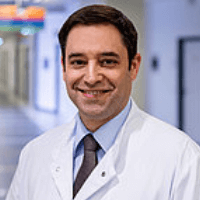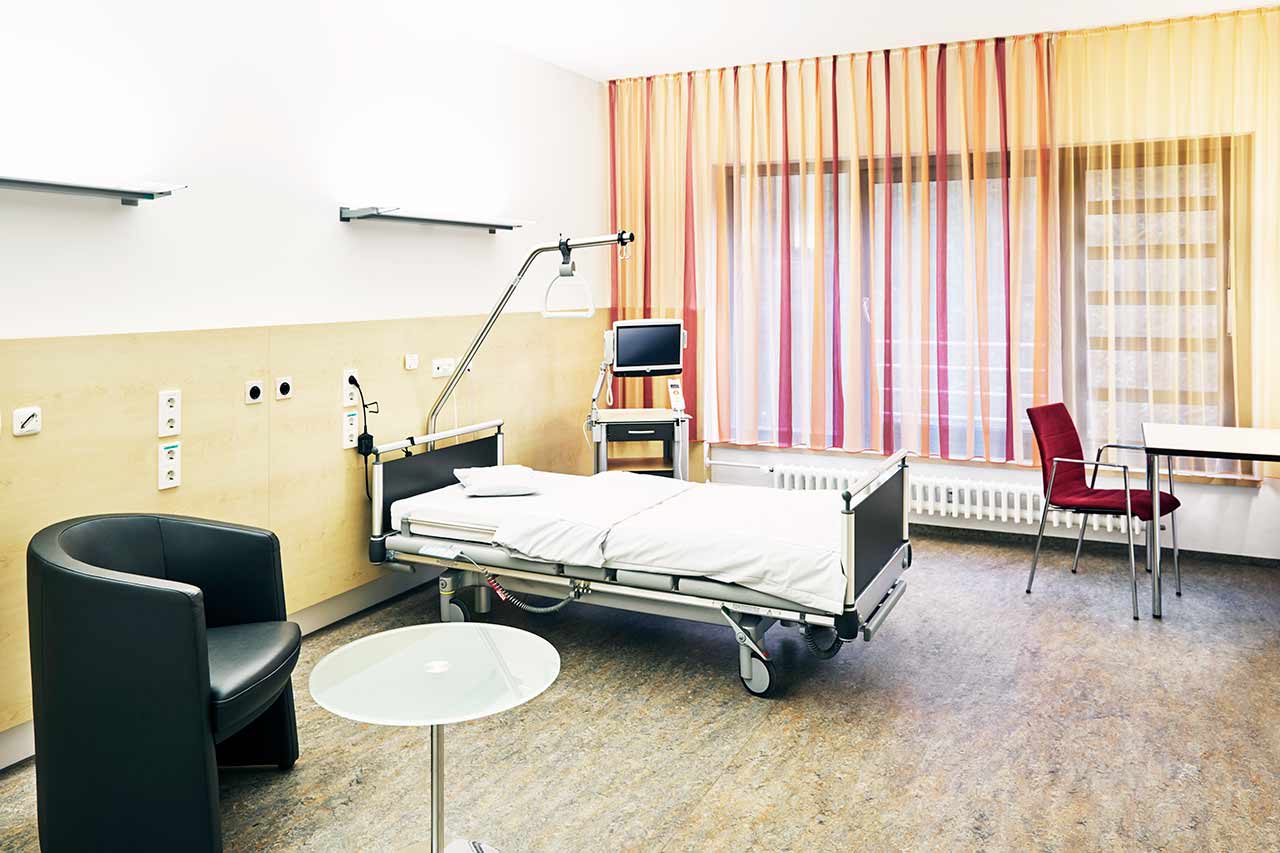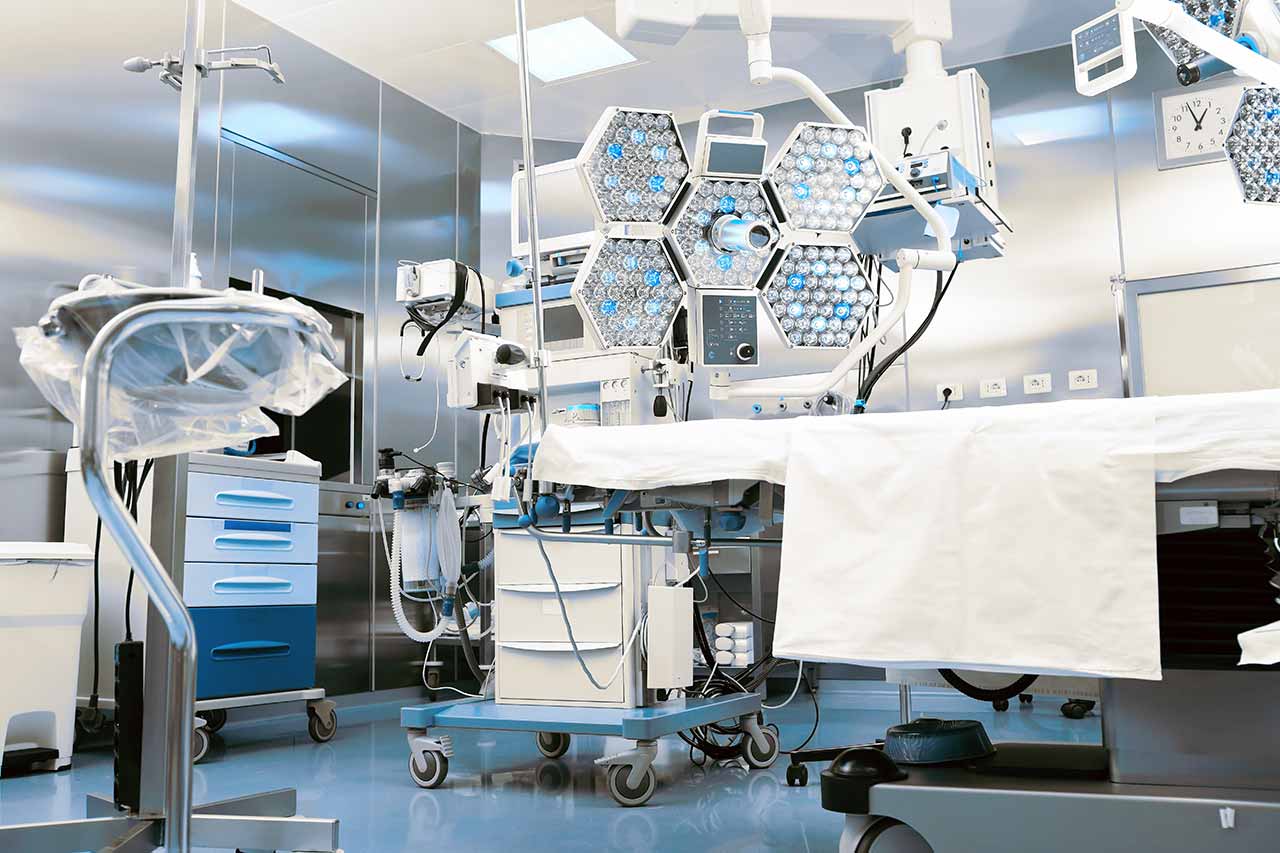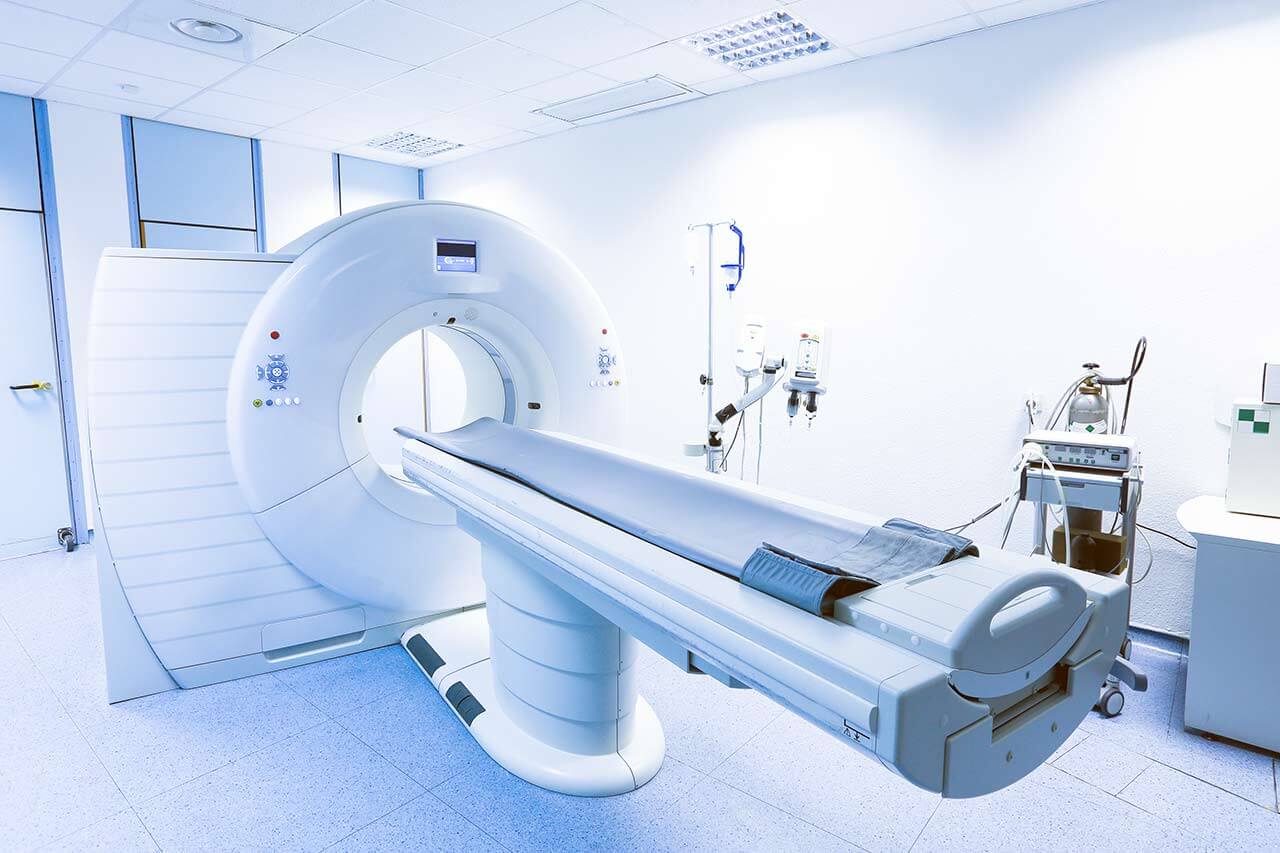
The program includes:
- Initial presentation in the clinic
- clinical history taking
- review of medical records
- physical examination
- laboratory tests:
- complete blood count
- general urine analysis
- biochemical analysis of blood
- determination of the concentration
of antiepileptic drugs in the blood - inflammation indicators (CRP, ESR)
- indicators blood coagulation
- neurological examination
- CT/MRI scan
- neuropsychological tests (on indications):
- ENMG (electroneuromyography)
- EEG (electroencephalography)
- SEPs (somatosensory evoked potentials)
- VEPs (visually evoked potentials)
- BAEP tests (brainstem auditory evoked potential)
- nursing services
- consultation of related specialists
- treatment by chief physician and all leading experts
- explanation of individual treatment plan
Required documents
- Medical records
- EEG (if available)
- MRI/CT scan (if available)
Service
You may also book:
 BookingHealth Price from:
BookingHealth Price from:
About the department
The Department of Neurology and Epileptology at the Hospital Kassel offers the full range of medical services for the effective detection and treatment of pathologies of the central nervous system (brain and spinal cord), peripheral nervous system and muscles. The treatment of patients with epilepsy is of particular interest to the department's doctors. The priority focuses of the department's clinical practice also include stroke treatment, which is carried out within a specialized Stroke Unit – the best in the State of Hesse. In addition, the department's team of neurologists is distinguished by outstanding success in the treatment of inflammatory and infectious diseases of the nervous system, dystonia, dementia and neuromuscular diseases. The department has at its disposal state-of-the-art medical equipment, which makes it possible to establish a diagnosis with high accuracy and provide timely treatment with maximum efficiency. The high professionalism of the department's specialists allows them to competently combine the very latest treatment methods available in the department to achieve a favorable treatment outcome. The department is headed by Prof. Dr. med. Julian Bösel.
Stroke is one of the most common and dangerous neurological disorders, and therefore the department has a modern Stroke Unit, the medical team of which has colossal experience and excellent technical capabilities to provide emergency care to patients with this pathology. The Stroke Unit of the department is designed for 14 beds, each of which is equipped with a progressive monitoring system that ensures continuous monitoring of blood pressure, electrocardiography indicators and blood oxygen levels. The specialists of the Stroke Unit provide emergency medical care around the clock. This is especially important in the case of admission of patients in the so-called "golden hour", when the effectiveness of therapeutic measures is maximally high and allows avoiding irreversible processes in the body. After stabilizing the patient's condition, he is transferred to the Post-Stroke Unit, where he undergoes the following stages of treatment aimed at preventing repeated strokes. At this stage, the patient undergoes secondary prevention, which involves taking medications to improve blood flow or anticoagulants, lipid-lowering drugs, as well as drugs to lower blood pressure. In addition, physiotherapists, occupational therapists and speech therapists work intensively with the patient. It is worth noting that the department's Stroke Unit is the largest and best in the State of Hesse, while the highest quality of medical care in it has been awarded by the certificate of the German Stroke Society.
The neurologists working in the department regularly deal with the treatment of patients with epilepsy of various origins. The treatment of this disease can be provided both on an outpatient and inpatient basis. When admitted to the department, the patient undergoes an initial consultation followed by the comprehensive diagnostics and assessment of status epilepticus. The diagnostics involves not only routine studies such as electroencephalography and sleep-deprived EEG tests, but also long-term video-EEG monitoring and examinations using a portable EEG apparatus. Particular attention is paid to pregnant women with epilepsy. The treatment program is developed individually for each patient, taking into account the frequency and intensity of epileptic seizures, the characteristics of the patient's body and his general state of health. The department also conducts vagus nerve stimulation for drug-resistant epilepsy. Whenever required, the specialists from related medical fields are involved.
The department also demonstrates excellent results in the treatment of such complex neurological disorders as multiple sclerosis, Parkinson's disease, amyotrophic lateral sclerosis, myasthenia gravis, polyneuropathy, normal pressure hydrocephalus, idiopathic intracranial hypertension, dementia, meningitis, encephalitis and others. In the case of a severe course of the disease, the patient requires hospitalization, while the patients with a stable condition can be treated outpatiently. The treatment is based on drug therapy with the latest generation drugs. The department's doctors provide each patient with an individual treatment regimen, taking into account the specific clinical indications and the rate of progression of the disease.
The department specializes in the diagnostics and treatment of the following neurological disorders:
- Stroke
- Epilepsy
- Inflammatory diseases of the central and peripheral nervous system, including multiple sclerosis, inflammatory polyneuropathies
- Infectious diseases of the nervous system
- Meningitis
- Encephalitis
- Neuroborreliosis
- Parkinson's disease
- Amyotrophic lateral sclerosis
- Myasthenia gravis and other muscle diseases
- Normal pressure hydrocephalus
- Idiopathic intracranial hypertension
- Dementia
- Diseases of the peripheral nervous system, including compression syndromes
- Other diseases of the nervous system
The department's range of medical services includes:
- Diagnostics
- Electrophysiological studies
- Electroencephalography
- Electromyography
- Electronystagmography
- Recording of somatosensory, auditory and visual evoked potentials
- Extended electroencephalography
- Sleep-deprived EEG test
- Continuous EEG monitoring
- Long-term video EEG monitoring
- Neurosonography
- Parenchymal ultrasound
- Doppler sonography and duplex sonography of the extra- and intracranial arteries supplying the brain
- Intensive neuromonitoring
- Intracranial pressure measurement
- Cerebral perfusion pressure measurement
- Cerebral oxygenation monitoring
- Cerebral oximetry using near-infrared spectroscopy
- Pupillometry
- Cerebrospinal fluid testing
- Neuropsychological testing
- Imaging studies of the brain and spinal cord (in collaboration with the Department of Diagnostic and Interventional Neuroradiology)
- Computed tomography
- Magnetic resonance imaging
- Digital subtraction angiography
- Biopsy
- Electrophysiological studies
- Treatment
- Emergency neurological care
- Intensive neurological care
- Medical treatment with modern drugs
- Botulinum toxin injections (for example, for the treatment of focal dystonia, hemifacial spasm, some forms of spasticity)
- Other diagnostic and therapeutic options
Photo of the doctor: (c) Klinikum Kassel
About hospital
The Hospital Kassel is a progressive medical facility with a huge medical team, which provides high-quality medical services in all branches of modern medicine. The hospital is part of the regional medical Gesundheit Nordhessen Holding, which unites 5 top-class medical centers, including specialized rehabilitation clinics. With 1,281 beds, the hospital is known as the largest medical complex in the federal state of Hesse. The hospital has 32 specialized departments with highly qualified doctors and specially trained nursing staff in each department. The team of 3,200 employees takes care of the health of patients. The main value for each employee is the patient's health. The professional skills of the medical staff in combination with state-of-the-art medical and technical equipment of the hospital provide excellent opportunities for the treatment of patients with pathologies of any severity.
The hospital provides treatment to over 55,000 inpatients and about 140,000 outpatients every year. Medical care is provided to both German citizens and many patients from foreign countries. Such high rates are the evidence of excellent quality of medical services and the high credit of patients' trust.
The hospital has created a wonderful atmosphere, which contributes to the rapid recovery of patients. All diagnostic and therapeutic rooms, operating rooms, as well as patient rooms are designed taking into account modern standards of European medicine in order to ensure maximum comfort of each patient. All employees working in the hospital provide the patient with understanding and respect, as well as support him in every possible way during the entire therapeutic process.
The hospital successfully implements a quality management system. It uses its own quality management system implemented by the medical Gesundheit Nordhessen Holding, as well as the IQM (Initiative Qualitätsmedizin) monitoring system. As part of healthcare quality management, the hospital annually clearly provides reports on its clinical activities, the success of diagnostics, treatment, level of patient care, etc. Thus, the hospital stands for maximum openness in its work and makes every effort to maintain the highest level of quality of medical care.
Photo: (с) depositphotos
Accommodation in hospital
Patients rooms
The patients of the Hospital Kassel live in comfortable single, double and triple rooms. The patient rooms are made in a modern design and pastel colors. A standard patient room includes an automatically adjustable bed, a bedside table, a wardrobe, a table and chairs for receiving visitors, a TV and a telephone. The patient rooms have Wi-Fi. Each room has an ensuite bathroom with shower and toilet.
The hospital also offers enhanced-comfort patient rooms. Most of these rooms have a balcony. The bathroom additionally includes a hairdryer, towels and toiletries.
Meals and Menus
The patient and the accompanying person are offered tasty and balanced three meals a day. If for some reason you do not eat all foods, you will be offered an individual menu. Please inform the medical staff about your food preferences prior to treatment. The patients staying in enhanced-comfort rooms are provided with an individual menu every day.
The hospital also has several cafes where one can have a cup of tea or coffee, taste delicious pastries, salads, main hot dishes, pizza, etc.
Further details
Standard rooms include:
Religion
The religious services are available upon request.
Accompanying person
During the inpatient program, the accompanying person can live with the patient in a patient room or a hotel of his choice. Our managers will help you choose the most suitable option.
Hotel
During an outpatient program, the patient can stay at the hotel of his choice. Our managers will help you choose the most suitable option.





